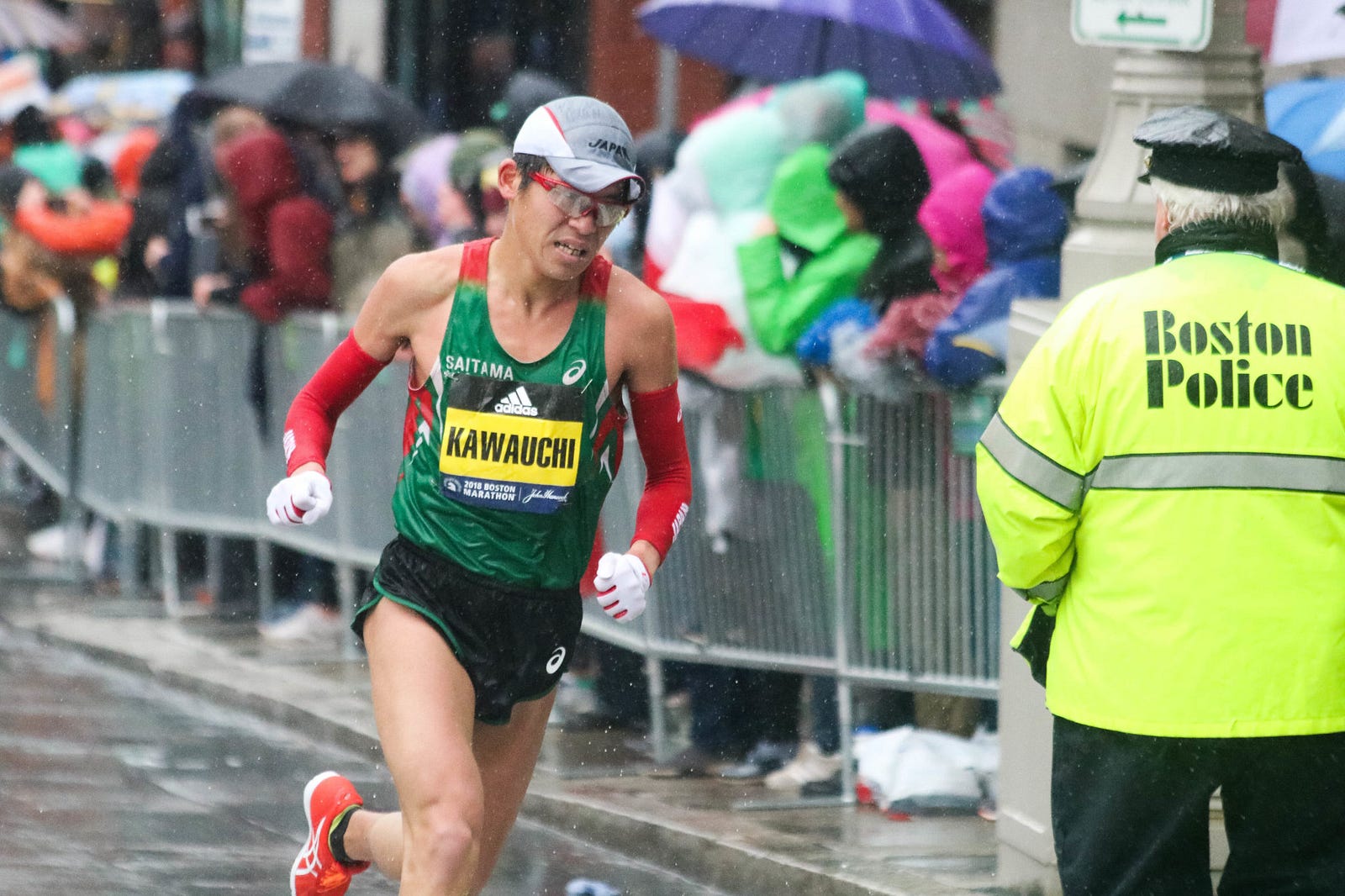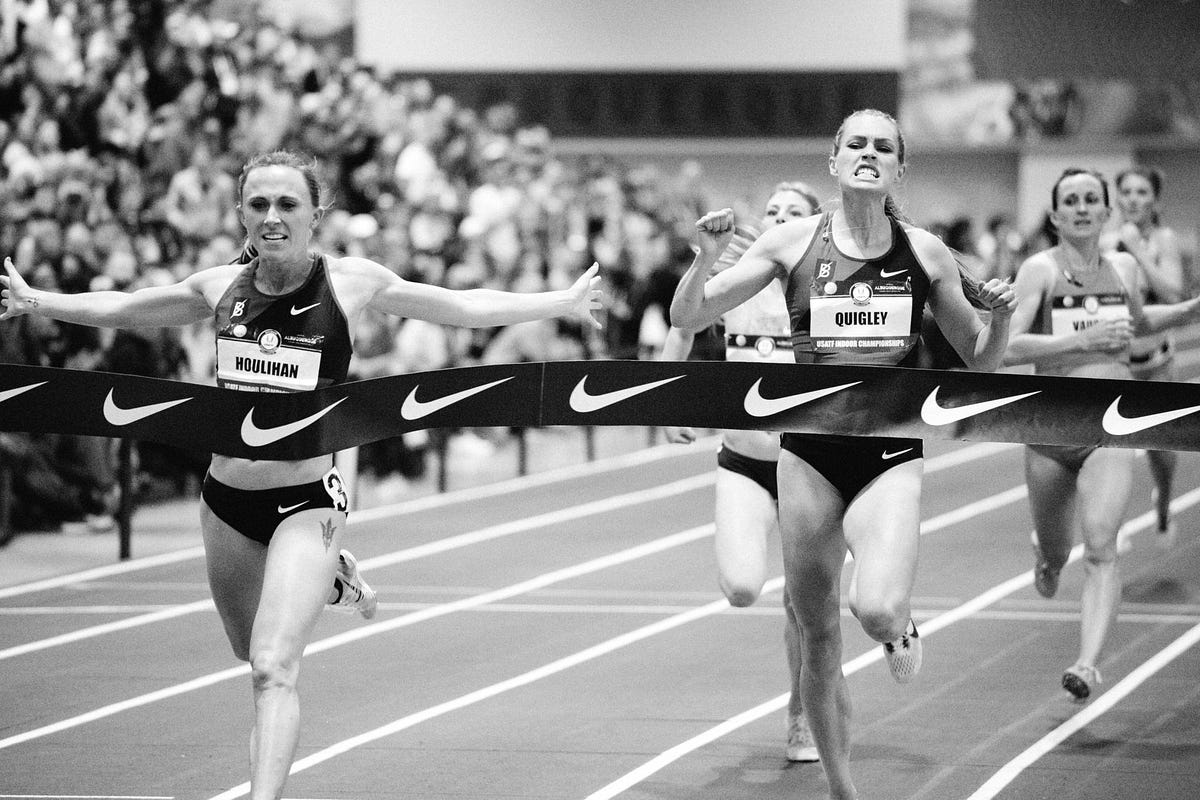By Tommy McHugh
July 26, 2018
Sometimes the hardest part of dealing with unpredictability in distance running is accepting that a large percentage of your performance is unpredictable. Of course you have to put in the work to get better, but, once you’ve run the miles, you aren’t necessarily guaranteed a personal best. Just look at Evan Jager. I don’t think anybody can say that Evan isn’t ready to run sub 8:00 in the steeplechase. He certainly has done the training, and he has the talent to accomplish it. The problem is sport is messy. Whether it be mental, environmental, or physical, thousands of factors make up a breakthrough performance. At that level, those factors are exponentiated to a level most runners never have the privilege of experiencing.
Personally, I’ve seen unpredictability through many lenses in my running career. There have been times where I’ve been in great fitness, crushing workouts and wondering why I can’t mimic the same experience in a workout on race day. However, I’ve also been coming back from sickness, working away just to see a glimmer of the fitness that I once had. I know many athletes who have experienced both ends of this spectrum, but the biggest lesson I’ve learned can be well summarized by this post professional runner, Nick Willis, shared the other day:
Patience and persistence will win out, and I just hope the season doesn’t end too soon before I can hit my best form. Definitely a time of learning, but in a good way. If you’re coming back from injury, know that your form will come back eventually, don’t fret, just wait it out and enjoy the journey.
Sometimes we just have to wait a little bit longer for the next breakthrough. Having to deal with unpredictability makes you that much stronger at running. It hardens you so that you’re ready for anything come race day. But if you’re out there, like I have been many times, struggling with a plateau, an injury, or just a sense that you aren’t making progress, I’ve written some lessons I’ve learned that have made me ready to deal with any unpredictability that I’m faced with.
You perform well under these conditions.

Photo by Kyle Klosinski
Throughout high school, our team would listen to a recording to practice visualizing a race the day before it happened. It would last about 30 minutes, and we would try to visualize different parts of a race and the ways we would deal with them. At the beginning of the tape, when the narrator began talking about poor conditions, he would say something along the lines of, “Warmth just makes you looser, wind makes your form better, and coldness helps you stay at attention. You perform well under these conditions.” When race day comes, it could be hot, raining, windy, etc., and you still are going to have to start when the gun goes off. During the race, someone could cut you in, or the race could go off super fast, or slow. It’s easy to give up and get down when the unpredictability of a workout, or a race, makes a breakthrough performance unideal. However, the key to overcoming most of this unpredictability is actually embracing it before race day. Some people don’t believe in the impact of mentally preparing for races or workouts, but I’ve come to realize that not practicing some kind of mental preparation is just like not doing strength training or mobility work. You’re leaving stones unturned that with just a little work a few times a week can help make you stronger.
Mental strengthening isn’t just through listening to visualizations either. Look at Desi Linden and Yuki Kawauchi at Boston this year. I have no idea if either of these athletes listened to any mental rehearsal clips in their entire careers, but I do know in a general sense what their training and racing are like. They love to work hard no matter the conditions, and the work they put in over and over again builds that character for situations like Boston this year, where everyone else got numb from the cold, and they were numb to the challenges the weather brought.
Focus on winning races, not chasing fast times.
Matt Centrowitz, Jr. isn’t the Olympic champion because of the times he runs in Diamond League races. Sure, they’re fast for an American, but, even when he had a huge race in Monaco this year, he was still about three seconds away from the win. He is the Olympic champion because he’s a competitor. Sure, a lot of guys had faster PRs than him in the Olympic final, but, by focusing on winning races instead of chasing fast times, he gets it done when it counts.
At the end of the day, if you win every race you compete in, eventually you’re going to run a personal best. In fact, from personal experience, I find focusing on time can be more harmful than it is productive. Getting in tune with a race, lets you relax and get into your natural groove. Hitting splits gives you a sense of urgency during a race that doesn’t need to be there, and, when you let the performance flow, fast times will eventually come.
There’s always a way to get out of being boxed in.
When I was a sophomore in high school, I went to the Oregon Distance Running Camp. The camp was a great experience, showing me a whole new level of distance running. There were many parts of the camp I remember, including a dance party with the one, and only, Ed Cheserek. However, one thing that still stands out to me today was when Andy Powell got up in front of us and told us there’s always a way out when your boxed in; you just need to find it. Now, you’re probably thinking this lesson is about how, when you’re stuck in a bad situation, there will always be a way to get into the position you need to in order to succeed in a race, and you would be partially correct. The real lesson, though, is that sometimes you need to act like you own the track you’re racing on. That space to get into the position you need to be in is going to be small. You’re going to have to jostle around and throw some elbows. You’ve got to develop the confidence to understand that the only way you’re going to win this race is if the most important person in the race is yourself. Why do some of the best distance runners have the most swagger? It’s because the belief they’ve developed in themselves is so strong that they can take control of every aspect of what’s about to happen when the gun goes off.
Cultivate a community that builds success from eachother.

Photo by RJ McNichols
At the 2016 Olympic Trials, the Bowerman Track Club qualified seven women from their team to the Rio Olympics. Did they just have the raw talent of seven Olympic-caliber women on their team? Yes. But many professional running groups have Olympic-caliber individuals and are lucky to have one Olympian ever. These races come down to hundredths of a second, and, when it’s the Olympics, everyone is doing what they need to to get to Rio. So, how was Bowerman able to do it? Well, they got on a roll that started in February of that year. That February, Amy Cragg and Shalane Flanagan qualified for the Olympics at the marathon trials. When it came to the track trials, Emily Infeld was an inspiration in the 10,000m, qualifying after dealing with multiple injuries the previous few years. And that early success started to inspire more success from the other women of Bowerman Track Club. Sometimes just seeing your teammates be successful is all you need to have your own success. I always hear the tacky saying, “Success breeds success,” but it’s true!
Even on a scale smaller than the Olympics we see this. This year, I was able to watch the Carleton College (a Division 3 school in Minnesota) men’s cross country team get 10th at NCAAs, their highest place since 2004, and win their conference for the first time since 2002. Carleton came into the season unranked nationally and ninth in the central region, after losing a number of upperclassmen the year before. But you know what? From the early season, Carleton just got on a roll, using the success of their teammates to keep building momentum. Almost every race they ran, they placed unexpectedly higher than they were supposed to. I know every guy in that top seven was fit and worked hard that season, but, when you watched them run, you could see where the success was coming from. They worked with each other to get the results they had. The feeling almost can’t be described through words, but, when you see a team in total synchrony each doing their piece to get the machine to move, you understand that this team is successful not just because of one or two really outstanding talents, but because everyone is making an important impact. When you’re working together, unpredictability becomes less important because it’s easier to give up if you’re just doing it for yourself, but, when you have a greater cause, you can push back through adversity that comes from training or racing.
. . . .
And, lastly, the most important lesson that I’ve learned is:
Remember your time will come, you just don’t know when, so remember why you actually run.
When you’re stuck wondering why a PR hasn’t come in months or when that nagging pain from your injury will turn into 1km repeats at PR pace, just remember success is almost never linear. I’ve been told that a lot, and, trust me, I know it’s easy to shake it off and get back into your slump. However, when you spend the extra effort to get out the door and do what you need to do just one day at a time, you learn to remember it’s not just about the PRs. Don’t worry; they’re going to come eventually, but you don’t do it so you can say you ran some obscure time that most people won’t even understand. I’m not here to tell you why, but I know, for me, I run because there isn’t a clear end goal in my running career. So many times, if you follow the steps and do the work, you get the outcome that’s written on paper, but that isn’t the case with running. I’m not sure where my running is going to take me, but I love that feeling of finding the unexpected through training. Whether it has been finding a new sense of fitness, great friends through running camps, or a passion for coaching and exercise science, that’s why I’m called to running. When I’m stuck with the unpredictability of training, wondering why I’m not running as fast as I should, I remember that the unpredictability has connected with so many positive things as well, and I would never give up what I’ve gained for predictability in races.
See you next Thursday for more ramblings!
*Featured photo by Ryan Sterner
Tommy McHugh
Assistant Cross Country Coach at The Latin School of Chicago and software developer for The GAIN Network. Ran for North Shore Country Day School.